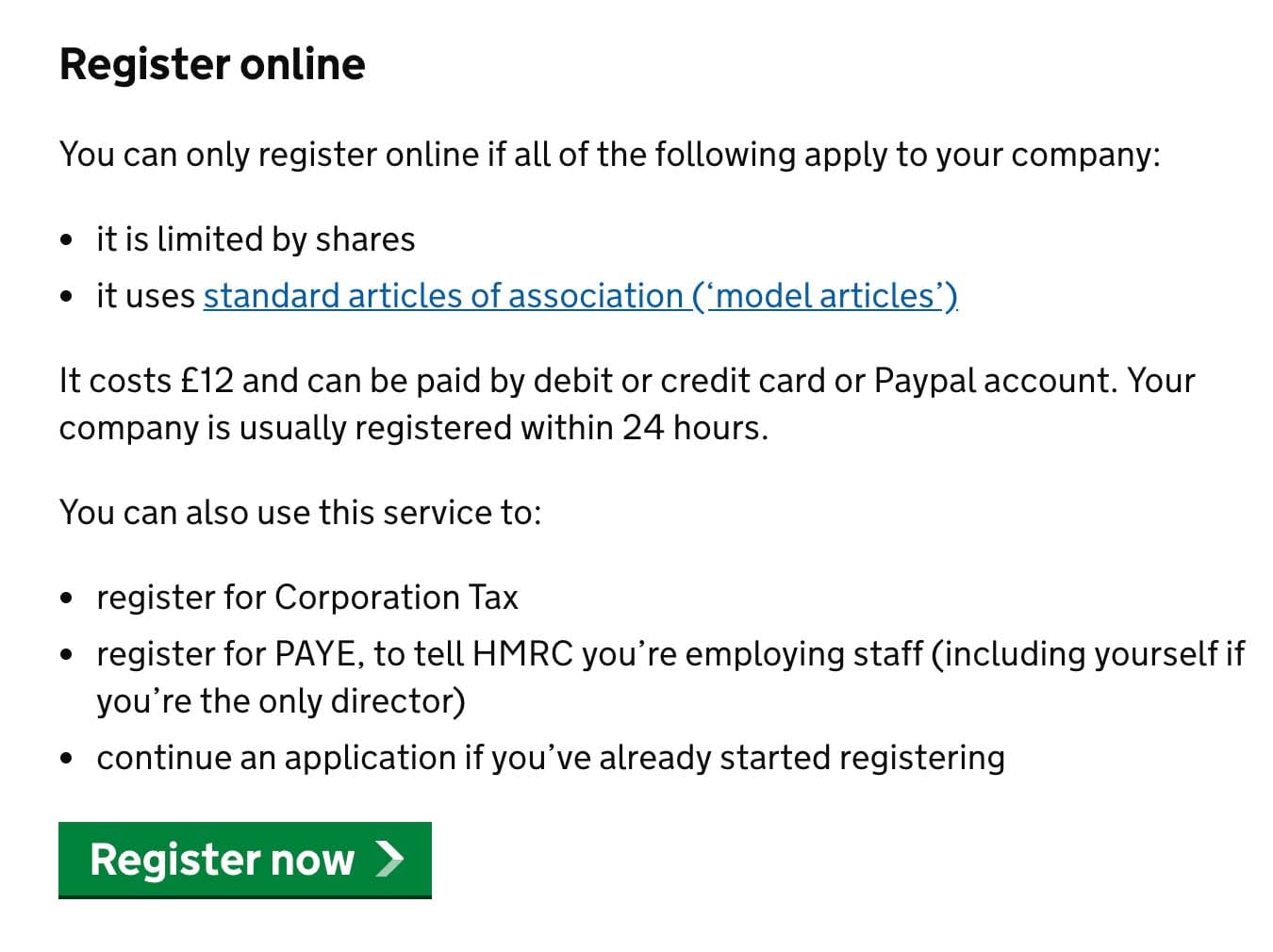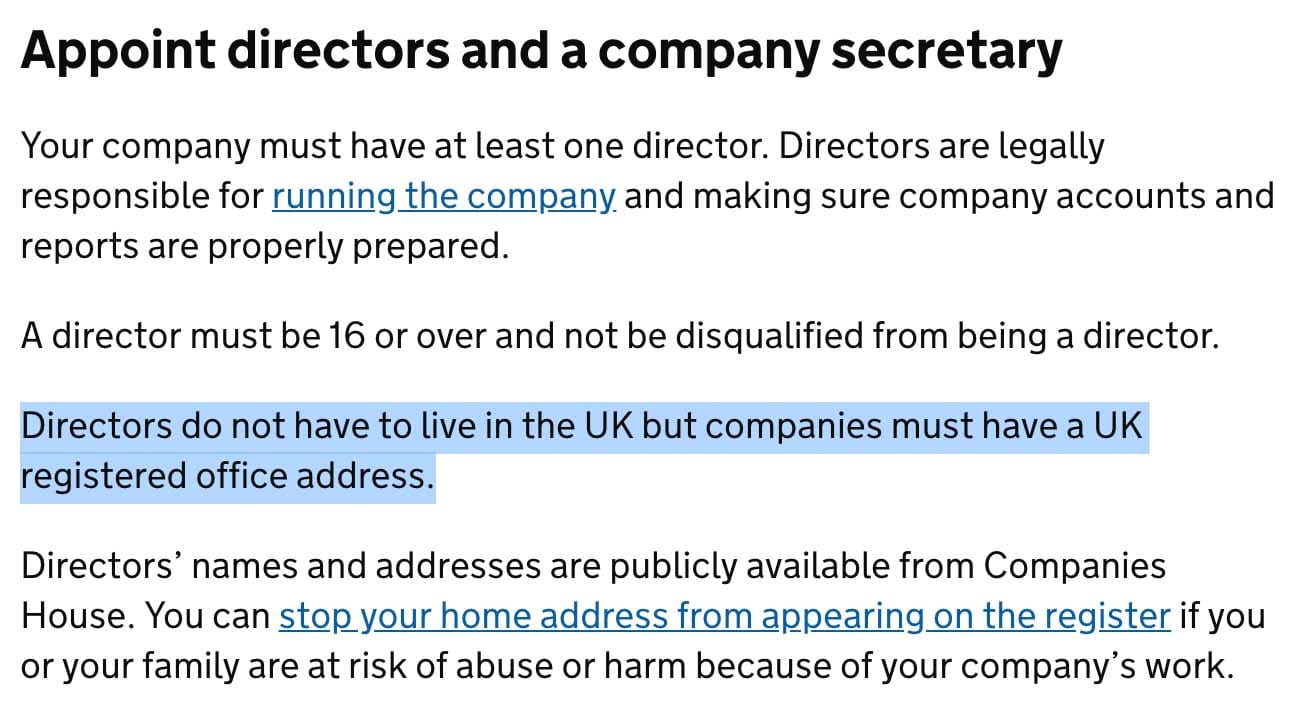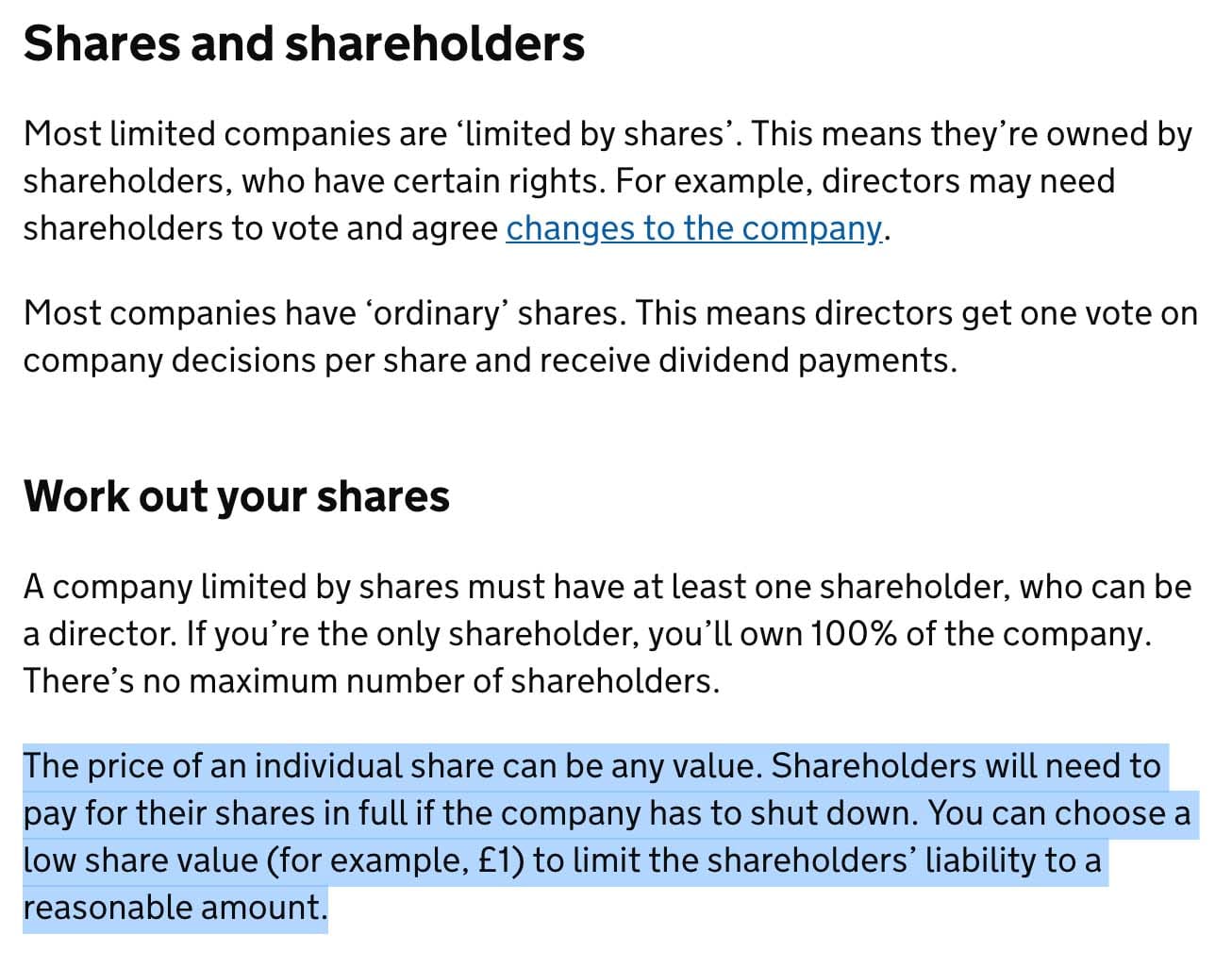In my honest opinion, setting a company in the UK is the best choice for freelancers. When in 2014, I started digging into the topic of LTD, I couldn’t find high-quality guides, that would help me. Later on, I decided to gather all trustful data and sources in one place. The limited company gave me tremendous possibilities for growth and access to customers around the world. I hope that you will also gain this opportunity for business development.
My experience on running a company in England
Running a British LTD is a sheer pleasure.
I could end the post here, but I guess you would like to know more.
On 10th December 2014, I set up a company called Business Soft LTD (currently Nerd on Tour LTD) in 24 hours. This is a time from turning on a computer to receiving the confirmation. At this moment I became a director of a British company, that became a foundation for all my entrepreneur endeavours.
Prior to setting it up, I did extensive research:
- I participated in a seminar organised by Axxea in Rotherham, UK.
- I talked to and compared offers from many Polish accountants working in England.
- I reached and compared business bank accounts in Poland for the LTD.
- I checked and tested software for everyday business accounting.
This knowledge helped me work in the tourism and IT industry:
- I was working with and big and small Polish tour operators.
- I created websites, domains and offered other internet services.
- I bought the necessary products for my company.
Besides the regular operations I also accomplished other tasks, that can be useful for you:
- Name change.
- Registration address change.
- Accountant change.
The most important test of my knowledge about LTD was to file the annual report. The whole process was straightforward and besides some missteps in ended with success.
Everything you read below is my experience I gather til this day. The article is created specifically for those who work as freelancers.

Disclaimer – please proceed with caution
I’m not a lawyer nor a British resident. All information I’m passing here is my experience and knowledge I gained since I started to seriously dig into LTDs.
For me, a limited company is a convenient, practical, safe and long-term technical solution for my business activities. Yes, I underline the technical term. As a Nerd on Tour I work for years in tourism/IT and at some point, I need a foundation for my bigger projects. Below I list arguments, why the company in the United Kingdom is a marvellous idea.
In the whole article I tried to be very specific and link to the trustworthy sources, to back my words. Like all humans, I have a right to be wrong. If you find an error – please write it in the comment section and I’ll try to fix it.
I’ll be updating this article – improving it, to keep it relevant. Please keep in mind that it more like a road sign that can help you to go in the right direction. I also encourage to widen your expertise in British LTD, whenever it’s possible.
Common Sense is the most important factor
If you want to setup and run a company in the UK, you need to understand what is a “common sense”, as you’ll hear it a lot. Common sense is a base for all business endeavours. Very often, instead of:
- the law,
- regulations,
- agreements
- limitations,
you will be using your common sense. If anything is strange, off the hook or suspicious – it means, you should not do it.
It’s quite similar to the tour manager instinct, that we need to have to work effectively. Regardless of the country and circumstances, we need to feel what to do to keep our tourists satisfied. We need to keep track of the tour programme while checking ours and customers safety. When running a company, you also need to work with awareness.
There is no such thing as one official rulebook for managing a tour. This applies also to running a company. We should learn from others, but you are a smith of your own fortune. Therefore in every situation:
- trust yourself,
- keep a distance,
- double check in several sources,
- ask questions,
- ask for verification,
- listen to your own instinct.
Common sense will help you also with choosing an accountant, opening a business bank account and all other tasks in your business development. Keep in mind, that Limited companies are a lucrative business [page backup] – it attracts scammers and con artists.
I assume you are assertive towards “Rolex” peddling sellers at a base of Eiffel Tower. Keep it also towards everything about LTD in the UK.

What is a Limited Company in Great Britain?
It is an entrepreneur entity, that anyone can set up on Companies House webpage. Companies House is an organisation that register companies on behalf of the British Government.
Please be aware, that LTD / Ltd / ltd is a short version of Limited. It’s a term derived from a private company limited by shares. There are equivalents in other countries, but local corporate laws can define the scope of a limited company differently.
Searching for additional information on the internet, keep in mind that the terms listed below are used interchangeably. Yet, they are not synonymous:
- entrepreneurship,
- company,
- LTD,
- business,
- England,
- UK (United Kingdom),
- Great Britain.
Running a business remotely can be an unexplored topic in your country, as it is in Poland. I strongly recommend to use British Google at www.google.co.uk and use English search queries.
You can register different corporate entities on the Companies House webpage like LLP, PLC, Trusts et cetera. For freelancing, which includes working as a tour manager, the most useful is a Limited company.

Why it’s worthy to register a company in Great Britain?
- According to the World Bank, it’s one of the best places in the world to register a company [article backup].
- Income Tax is the biggest source of revenue for the United Kingdom [article backup]. In other words, the British government is helping businesses to be profitable because it affects the national economy.
- The United Kingdom is one of the richest countries in the world [article backup]. It means that British companies are prestigious and respected, by every other business.
- The documentation about setting up, running, reporting and closing a company in the UK is readable, straightforward and understandable. The most important source of information is Companies House website.
- Registering fee in Companies House is 12 GBP. You can pay with card or PayPal and the confirmation comes within 24 hours.
- Company initial capital is declared only – for example, 100 GBP. The capital is not validated, by anyone and it matters if a company has many shareholders. More about it on the Companies House website [article backup].
- It is a fully operational company. LTD is separate from you, legal entity. It has separate accounting and its director/s can be anyone who is older than 16 years old and doesn’t need to live in the UK [article backup]. A company can be transferred to other people, can be continued after founders, directors and shareholders death. Needless to say, it can also be closed at any moment.
- A limited company is filing Annual Report / Statutory Accounts / Audited Accounts in 9 months after finishing the fiscal year. If it was set up on 15th April 2019, the filing needs to be done until 15th January 2021 – exactly 21 months after the registration date. The tax revenue is calculated, based on this report. It gives tremendous freedom in long-term finances for the company. It is crucial for freelancers, like those in tourism, where earnings are seasonal.
- Stable and unquestionable law – precedences instead of interpretations. I underline it once more – I’m not a layer, so I cannot comprehensively compare common law with civil law or in my case Polish law. From my private perspective, I think a common law is better. One of the examples is “Salomon vs Salomon $ Co Ltd” [article backup] precedence that happened in 1896. Till this day it’s a foundation for separation between a company and its shareholders.
- A limited company can run any type of business. My company Nerd on Tour LTD is currently operating in tourism and IT. In every annual report, you choose the main classification that brought the most income in that year.
- The simplicity of running a business. All operations (invoicing, accounting, documenting, selling etc.) can be done remotely with your laptop or mobile device from any place with an internet connection.
- The simplicity of communication. Most business activities are made with your accountant via email or phone. Rarely you will need to find information on Companies House website, fill an online form or call a helpline. There is no need for personal visits in British government institutions or sending files via snail mail.

Moreover:
- 671 GBP is a maximum director’s pension that is free from British health tax (NICs) and income tax. Before you can receive director’s pension from your company, you as a person need to register for individual tax number in the UK.
- British government offers an interesting programme for funding startups. An investor can optimize it’s income tax, by investing money into a newly formed business. The programme is called SEIS – Seed Enterprise Investment Scheme and it’s described in details on the gov.uk [article backup].
- Income tax for companies is 20% [article backup] If your yearly income was 10 000 GBP and business costs were 9 900 GBP, therefore 20% is taken from the revenue – 100 GBP. The British government receives 20 GBP.
- Mandatory VAT registration threshold is 85 000 GBP. If the revenue in your company was above this sum, you need to add VAT to your products and services from the next year. You can also register for VAT voluntary.
- Running company in Poland is a crime – that’s a conclusion from a book “Business in jerk land”, as this is how I would translate a Polish title “Biznes w kraju dziadów“. It tells a story of several entrepreneurs, who end up in financial problems due to tax collectors’ errors and crooked laws. Communism legacy, short and chaotic democracy, no financial traditions among others are the reasons why setting up and running a business in Poland is harder than in England. Wherever you want to start your entrepreneurship, I recommend reading this book (currently available only in Polish).
For what industries LTD in the UK is particularly attractive?
Freelancers are those who will benefit the most with a company in England. This is a common thread on every seminar about this topic. I agree with it completely. A minimal amount of bureaucracy, built-in remote work compatibility and contact with British accountant/tax collectors via email and rare phone calls lets you focus on actual work. You won’t lose time on digging into laws and invoicing.
I tested it with my work in tourism and web developing. Among those, I meet on seminars are people across all industries (estate building, logistics, gastronomy, etc.), yet the most popular are those who work remotely like IT, creative works, customer service.
Where can I work with British LTD?
Everywhere, as long it is aligned with common sense.
I create websites on my laptop, in any place that is connected to electrical power and the internet. I support customers in many countries, visiting them on site. In parallel, I hire services that are distributed around the globe. Great Britain remains a place, where my company is registered, therefore this is where I pay my company taxes.
If I would have a physical studio with a team of designers in Poland and work with customers mainly from this region, I couldn’t run it with LTD registered in the United Kingdom. Not only British and Polish tax collectors would be suspicious, but also accountants and customers could question the legality of such enterprise.
However, LTD can be set up to optimize costs, where the Polish company becomes a branch under British headquarters. I don’t have an experience is such matters, so I recommend consulting a British accountant and checking trustful sources.

Before you set up a company in the UK
If you are interested in having a business registered abroad it may be related to costs and issues you are having in your country. This is true for many Polish entrepreneurs and it creates a buzz around the topic. Before you decide to do anything, please read the following:
- This article is not a guide on how to trick your government tax collectors, mandatory health insurance or other institutions. The information I provide is abiding by British, Polish and international laws.
- Setting up and running a company in the UK means that you will follow British laws. It doesn’t require a degree in Cambridge law school, yet ignorance of law excuses no one. In the following paragraphs, I recommend sources and institutions, where you can ask for support.
- This is not a tax paradise. 20% is the current corporation tax [website backup].
- You have to have some sort of relationship with the UK. In other words, you need to have some business in running a company in England. Developing the economy and serving its citizens is the most important factor in the eye of the British government. This is where common sense takes place. It’s very unlikely that anyone will check if your products/services are also offered to British customers. If you run the company for years and there is no relationship with the United Kingdom, your accountant could become suspicious. Remeber, that they are your strongest link to Great Britain. It’s best to keep them close.
- Treat it as an investment. Being a tour manager lets you work in any country. Similarly running a British company is opening business relations in your homeland, Europe and everywhere else. The time and energy needed to grasp the LTD are totally worth it. Great Britain has a long entrepreneurship tradition, so it’s unlikely that the corporate laws will drastically change. Even in the light of Brexit.
- You need to know English in at least B2 level (Common European Framework of Reference for Languages). Email correspondence, reading official documents, talking over the phone, visiting Great Britain, seminars and meetings are just handfuls of circumstances where you need to feel comfortable with your language skills. Nobody at any moment will check your proficiency and no certificate is needed to set up a company. Nevertheless, your shortcomings can potentially cause problems. If you would like to improve language skills I recommend starting from the collection of sources by Fluent in 3 Months and Duolingo app.
- VAT deduction is possible only after VAT registration. Remember that the current threshold is 85 000 GBP/year. You can still buy products and services as company’s cost, but you cannot deduct the tax from them. As I mentioned earlier, you can register at any moment.
- Companies House is your first source of information. Read the official guides: Set up a private limited company and Running a limited company.
- Running a company is a marathon, not a sprint. Doesn’t matter where you will register and run a company, continuous education is essential. Search, ask and learn from those you trust. In my opinion, one of the best mentors is David Heinemeier Hansson (known as DHH), who co-edits Signal vs Noise blog. His book “Rework: Change the Way You Work Forever” can be a stepping stone for your business.
Who is an accountant in the British Finance System?
An accountant is your strongest link with British institutions. He or she will help you dealing with Companies House, tax collector (Her Majesty’s Revenue and Customs – HMRC) or Department of Work and Pensions – DWP. In case of doubts, an accountant is explaining how to file delegations, invoices et cetera. On the other side, when HMRC will have questions about your venture, the accountant is your first line of contact.
Finance sector in the UK is highly regulated and acquiring an accountant licence is a long and difficult process. Every accountant needs to regularly participate in seminars and pass tests, to continue the work. They are the experts in taxes and laws. In this efficiently operating system, business owners can focus on earning money while accountants are dealing with the bureaucracy.
Keep in mind that, an accountant can reject your filing if there are any doubts about your company or documents. In the case where an accountant is participating in money laundering or dubious activities, he or she can lose their licence and be prosecuted according to British law.

How to chose a good accountant in Great Britain?
It’s highly probable that economic ties between your country and the United Kingdom are getting stronger each year. This is true for Poland, therefore I was able to check several British accountants who conduct their business both in English and Polish language.
While this article was written originally in Polish and naturally is focused on the Poles’ perspective I hope that my experience in finding the right accountant can be helpful in your situation.
Economic relations between Poland and the UK are on the rise [article backup]. There are few key factors, among others:
Those bilateral connections resulted in a growth of the accounting sector, especially in Polish accountants with a British license. Since I started my company I checked several companies:
- ABS All Business Solutions – you can register LTD with them, but nothing else. They don’t pick up the phone or answer emails, so there’s no way to get any help in running a business. Their website is unreadable and not suitable for mobile devices. I don’t recommend working with this company and their clones, that are owned by the same person – 123LTD.co.uk EasyLTD.co.uk.
- Aexea – in March 2015 I participated in a weekend seminar in Polish, organised in their headquarters in Rotherham, England. It is a great opportunity for everyone who prefers live session with experts. Marek Niedźwiedź, owner of Aexea and his team are sharing their knowledge emphatically and you can talk with a coach after each themed lecture (registration process, British laws, international accounting, etc.). Now they also organise webinars and some of them are free. I was satisfied with the training, but I can hardly recommend their accounting services. They respond to emails after three weeks and they are overwhelmed by the amount of work. The annual report needs to be prepared for at least two months in advance.
- Capital Business Links – is a big accounting company with branches in London, Warsaw, Kraków and Gdańsk. They are quickly responding to emails and phone calls and you can schedule a private meeting in one of the offices. I visited their branch in Kraków in December 2015, to verify info from Aexea seminar. Sebastian Swałdek, director if this office was very helpful and sincere. CBL is positioning itself as a leader in the niche for Polish accountants in England, therefore their rates match the high-quality service they offer. It’s also the only company on my list, that is a member of ACCA – Association of Chartered Certified Accountants, an international organization that gathers certified accountants. Moreover, they also organize seminars in offices in the UK and Poland.
- Cracovia – is a small company run by Zbigniew Krakowski, who I met on Asbiro school gatherings. They offer much lower rates than their competition and it’s easy to reach them. I didn’t decide to work with Cracovia, as their website is chaotic and unprofessional.
- London Business Solutions – it’s my current accountant, who presents itself with a professional website and respond quickly to all inquiries. Their price rates and support over email and phone is on the right level for me.
Please remember, those are only my experiences. Use your common sense, when looking for an accountant.
You don’t need to look for an accountant that speaks your native tongue. If your language efficiency is higher than B2 and you can understand a British law jargon I recommend to check the whole spectrum of accountants.
How to set up a company in the UK and much does it cost?
This is probably the easiest part of the whole process. Every accountant offers an LTD registration in Companies House. The set up is easy and cheap (currently 12 GBP), so I suggest doing this on your own. Additionally, it’s best to familiarize yourself with the Companies House page. It will be useful in other operations like changing your company name, directors, registration address, filing reports, etc.
What do you need before setting up a business in England?
- Propper business name – no profanity is allowed and it cannot be similar to the company that already exists.
- Registration address – it has to be on the territory of the United Kingdom. Most of the accountants offer this as a service called “virtual office”. In practice, they allow using the postal address and collect your snail mail, if necessary. I recommend comparing rates of virtual offices, prior to LTD registration.
- Director – one person over 16. years old, who is legally responsible for the company.

- Company shares and shareholders – it’s a declared amount of funds for set up, for example, 500 shares with 1 GBP value is a 500 GBP capital. Director can but doesn’t have to be a shareholder. If it is your private company, you are a director and you own 100% of shares. Keep in mind, that if the company is closed, you are responsible for the value of the shares you hold.


Where can I get support regarding British LTD?
British entrepreneurship is a fascinating topic, mostly because over centuries the main goal is the economic growth, regardless of social and technologic changes in the world. Straightforward and reliable processes of setting up and running a company, has been proven over time. Thanks to this, a business owner can focus on the main objective for every company – a customer.
My experience with LTD is much alike to what you need to do in tourism and IT. It doesn’t matter how much time you spend learning theories. Much more important is how you manage every day and unpredictable situations.
In other words – you can set up LTD with minimal knowledge about British business. When doubts and problems arise, ask questions those, who solved them before. In every situation use your common sense and if the source or answer doesn’t satisfy you – seek more.
List of trustful sources
If you already started cooperating with a British accountant, ask them first. Besides, I suggest comparing the opinions and experiences of business owners and organizations, who are willing to share their expertise.
- https://www.gov.uk/business-support-helpline – direct and free for all support from the official government helpline.
- https://www.lepnetwork.net/growth-hubs/ – if you are currently or live in the UK I recommend visiting a Local Enterprise Partnership site.
- http://bpcc.org.pl/pl/artykuly-i-publikacje – British Polish Chamber of Commerce is one of the organizations that integrate Polish and British companies. I believe there is an equivalent of such institution in your country. Try to reach them.
- https://www.fsb.org.uk/join-fsb/what-we-offer – Federation of Small Businesses (FSB) is a British organization that gathers small and medium companies. They successfully lobby in British and European parliament.
- https://www.gov.uk/government/brexit – central and official list of changes regarding Brexit.
This is just the beginning
Regardless if you decide to set up a company in the UK I would like to thank you for reading till the end. Getting to the right sources and writing them down took me a lot of time. I believe this knowledge will help you on your entrepreneur journey.






Discussion